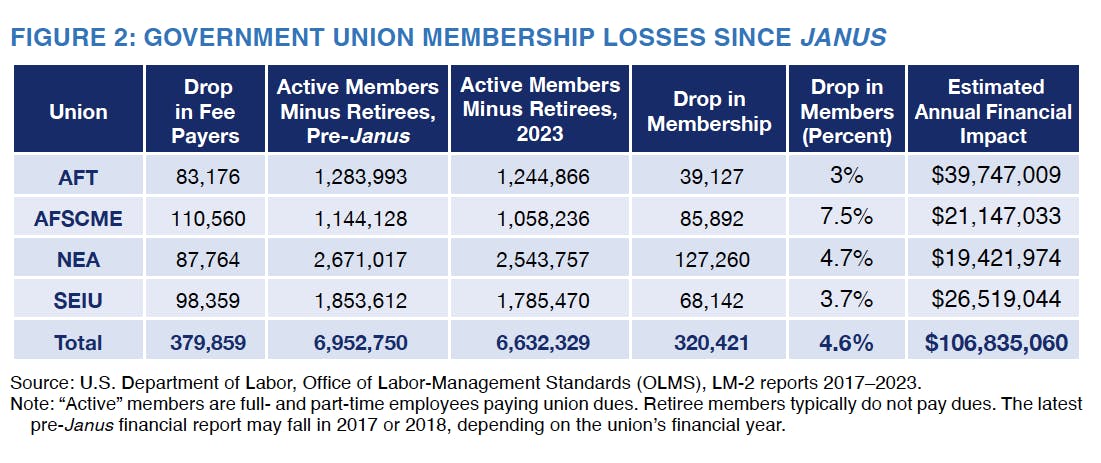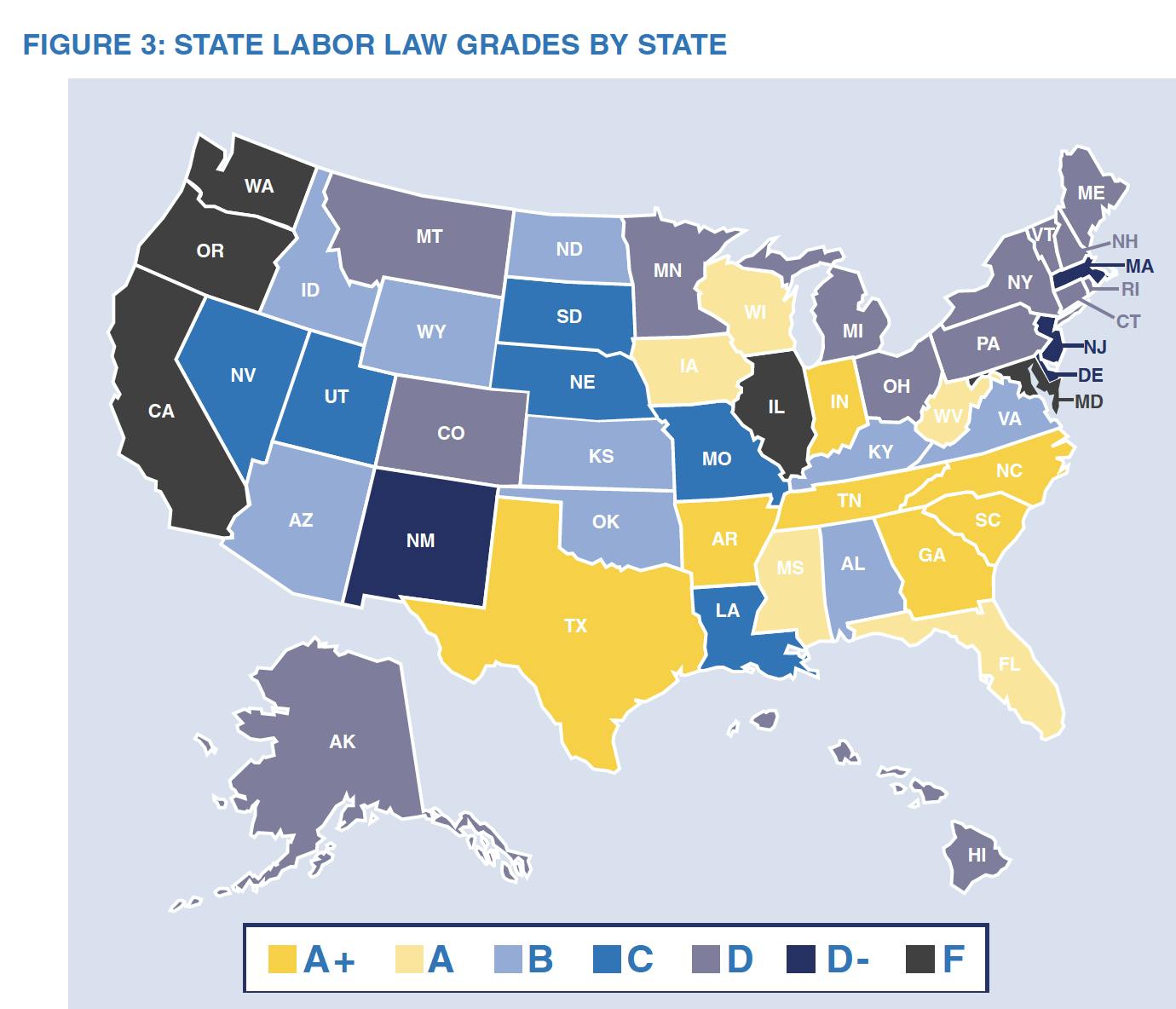Four Largest Public Sector Unions Bleeding Membership, New Report Finds
The four largest government unions have responded to bleeding membership by pushing for “aggressive” legislation to benefit them in order to offset declining influence, according to a new report.
The report, from the Commonwealth Foundation, found that the American Federation of Teachers (AFT), American Federation of State, County and Municipal Employees (AFSCME), National Education Association (NEA), and Service Employees International Union (SEIU) have lost over 100,000 members since 2022. The losses have been driven in part by the landmark Supreme Court decision in 2018 in Janus vs AFSCME, which said unions cannot collect fees from non-unionized workers.
“What we’re seeing in states across the country is that the leaders of these unions are trying to counter these losses by engaging in aggressive organizing campaigns and aggressive campaigns to change laws,” Andrew Holman, policy analyst at the Commonwealth Foundation, said during a media call on the release of the report on Wednesday. “These losses are costing these unions financially.”
In total since the Janus decision, the four top unions have lost a total of 320,421 members and around $106.8 million in dues.

Credit: Commonwealth Foundation.
Holman told The Daily Wire that another factor leading to decline was that “more and more people are becoming aware of how their dues are being used and what those dollars are being put towards.”
Unions have historically been solid backers of the Democratic Party and other leftist causes. Back in the 2022 midterm elections, the four largest public sector unions spent $700 million backing Democrats and leftist causes, with 60% of the funds coming from union dues, the Commonwealth Foundation previously found.
Tickets for “Am I Racist?” are on sale NOW! Buy here for a theater near you.
In response, union executives have pushed for access to employee personal information, tax incentives for union membership dues, and expanding public sector unionization. With personal information of public workers, union executives can have access to non-unionized employees to solicit them for political causes or to join the union.
“The lesson is clear: Government union executives use their power to build immense political machines, control workplaces, and lobby against beneficial fiscal and educational reforms,” the report said. “Along the way, these union executives appear more concerned with achieving their organizational and political goals than defending the interests of the workers they represent.”
The full report graded the labor laws of all 50 states on an “A” to “F” scale.

Credit: Commonwealth Foundation.
The report said that unions had particularly gained ground in the states of Illinois, Michigan, and Maryland where pro-union legislation passed. In Illinois, voters passed a constitutional amendment putting a right to collective bargaining into the state constitution while Michigan repealed its right to work status making all unionized workers have to automatically pay dues.
On the contrary, the Commonwealth Foundation praised legislative efforts in Florida, where the legislature passed a new law that requires re-certification of the union if it starts representing fewer than 60% of employees in a bargaining unit.
“As time passes, new labor laws that protect worker freedom will test legislative efforts to counter government union influence. In Florida, where union influence is already limited, the economy is booming, making it one of the fastest-growing states in the country,” the report said.


